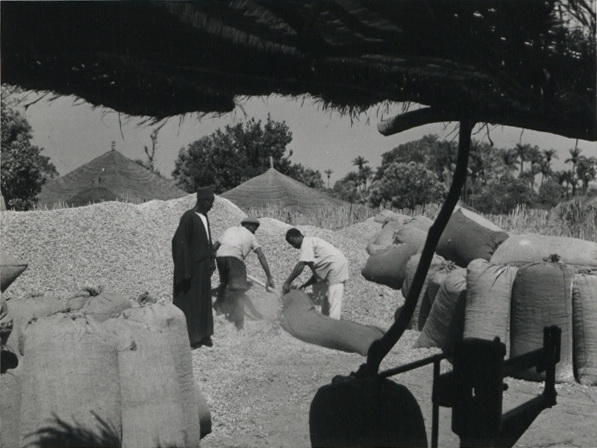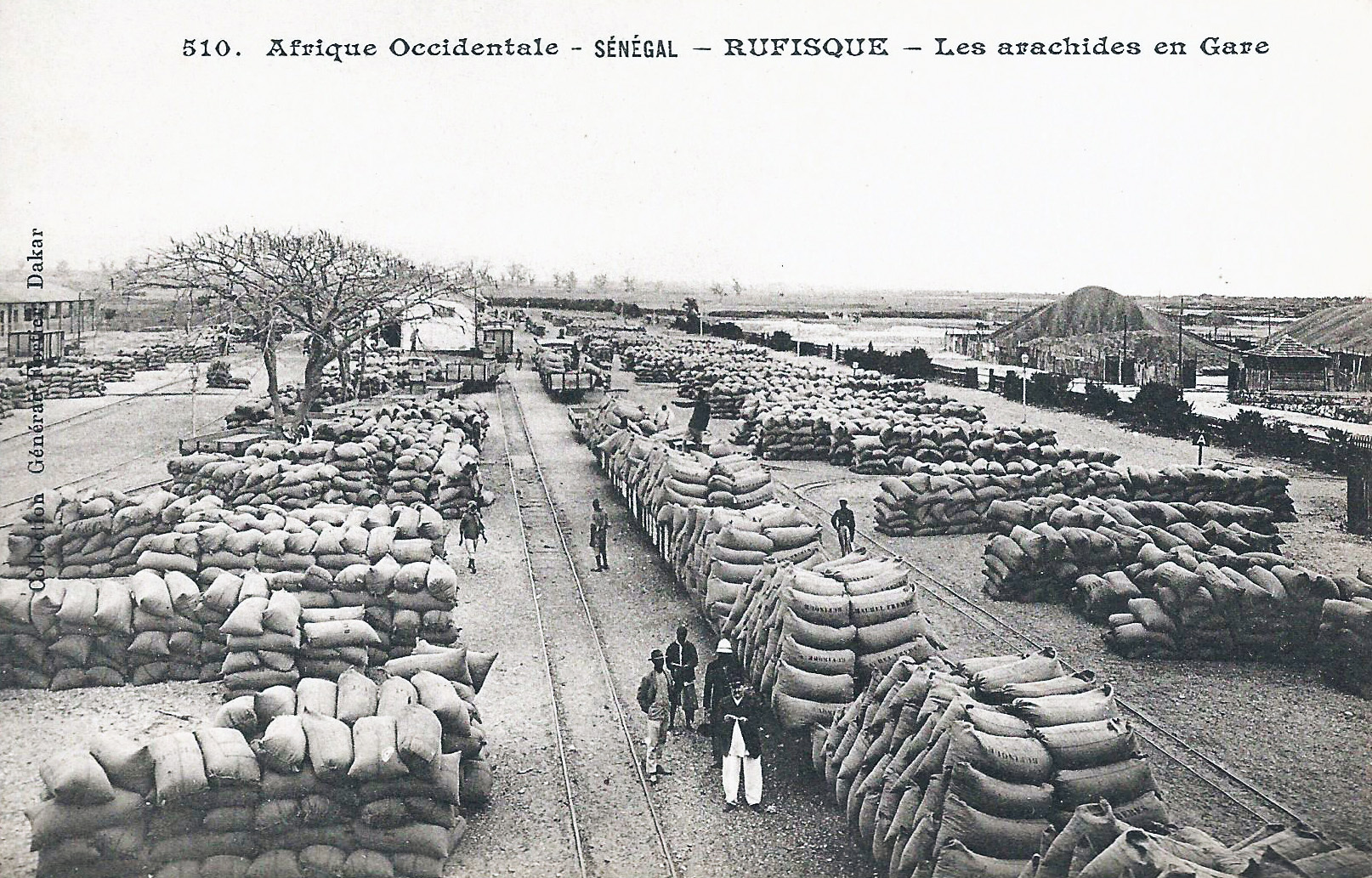El Hadji Alimu Ba
El Hadji Alimu Ba was born in Sonaco in the colony of Portuguese Guinea. For twenty years, he went annually to Senegal to farm peanuts, as you will see in the story below. He needed to do so because the colonial government required people to pay taxes. If you could not pay, they would beat you and throw you in jail. People were scared by the government, and ashamed when they could not pay. In fact, he was once thrown in jail for a day because his brother’s taxes were overdue, and his brother was not in the village because he was studying in a Portuguese colonial school. The chief of the village collected taxes for the colonial government, and you needed permission to do anything. Building a hut and having a rice field were only some of the things you needed the government’s permission for. In order to make money to pay taxes, and for himself, El Hadji went to Senegal each rainy season to plant and harvest peanuts. He would go for about three months at a time, and during that period went to many different parts of central Senegal. As you will see, this was not easy work. Some people were able to find a place to live, but others needed to sleep outside on the ground. If you could find someone to host you, you would work partially for them, and partially for yourself. In exchange, they would give you food and a place to stay.
Despite his hostility toward the Portuguese, he took their side in the war for independence. His father refused to let him fight. His brother, who had been educated in colonial schools, did serve as a Portuguese soldier during the war. After the war, the PAIGC briefly took his brother away for having been a Portuguese soldier, but they did not kill him.
Interview
At the time of the colonial government, were people used to going to Senegal? If they went to Senegal, what would be their business be there?
They would go and dig up peanuts and thresh them. Then they would come back [to Guinea-Bissau] after only three months.
When they went, how would they find hosts?
Early on we did not have hosts. Mango trees were our hosts. When you came, you would lay down your mat and lay under the mango trees.
Did you have food?
If you were working for someone, they would give you lunch, but for dinner, you would have to go and beg.
Did you do that [go farm in Senegal]?
I did it for more than twenty years
Where?
The first that I remember, I came to Senegal, it was named Sadio after you arrive in Gossas. Then I went to Njebel for two years, I came back, and then went to Njarem where I was for two years. Then I went to Daaru Musti, but there was not enough water. There were no trees there. There was much more water in Sine and Saloum, so I would go to Kaolack [the major city of Sine-Saloum]. After I returned, I went to Gerle, and then to Thiadaye where I was there with my friends [I have deleted the names of friend for anonymity’s sake]. We worked together in the fields. At first I didn’t have a lot of work but I was not scared of difficult things. If you were not a hard worker, it would get you. But I got it [the work] and I dug up peanuts well enough that I did not sleep under mango trees for too many years. I got a host. When you went, you would help your host in their fields for two days, and then you would work your fields for five days. In exchange, they would feed you and give you a place to sleep. The place I stayed the most was in Thiadaye, after I went to Ndiongolor.

